



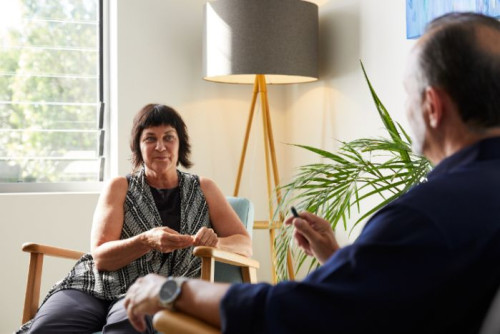




Byron Private
This provider's information has been quality-checked by Recovery.com's Research Team for accuracy and completeness, including center verification through appropriate third-party organizations.
Treatment Focus
You can admit to this center with a primary substance use disorder or a primary mental health condition. You'll receive support each step of the way and individualized care catered to your unique situation and diagnosis.
Primary Level of Care
Offering intensive care with 24/7 monitoring, residential treatment is typically 30 days and can cover multiple levels of care. Length can range from 14 to 90 days typically.
Treatment Focus
You can admit to this center with a primary substance use disorder or a primary mental health condition. You'll receive support each step of the way and individualized care catered to your unique situation and diagnosis.
Primary Level of Care
Offering intensive care with 24/7 monitoring, residential treatment is typically 30 days and can cover multiple levels of care. Length can range from 14 to 90 days typically.
Private Pay
You pay directly for treatment out of pocket. This approach can offer enhanced privacy and flexibility, without involving insurance. Exact costs vary based on program and length of stay. Contact the center for specific details.
Byron Private
Byron Private
About Byron Private
Experience a trusted and personalised approach to mental health and addiction treatment. Be fully supported by our expert team of medical, psychiatric, psychological and therapeutic practitioners, to make meaningful changes in your life. Set in the hinterland of Byron Bay, Byron Private is a holistic residential treatment facility providing specialised support for individuals suffering from mental health, addictions, PTSD, trauma and eating disorders. With a maximum of 12 guests at a time, they ensure an attentive experience for each individual.
Personalised Care
Byron Private takes a caring and personalized approach to support individuals in addressing the underlying drivers of mental health issues such as anxiety, depression, alcohol and drug addiction, burnout, PTSD and trauma, gambling addiction, eating disorders, relationship breakdown, and sex and love addiction.
The Program
Byron Private is designed to be non-clinical, with only a small number of residents at any one time. Their residential program reflects a holistic approach, offering comprehensive medical and therapeutic care alongside a wellbeing program that emphasizes nutrition, exercise, meditation, and bodywork.
The Setting
Located just ten minutes from Byron Bay’s pristine beaches, Byron Private's purpose-built center is nestled within the hills of the Byron hinterland. The atmosphere is welcoming and intimate, where individuals are treated with respect, consideration, and care. The healing environment, combined with a dedicated team, ensures an unparalleled experience.
Sustainable And Luxurious Living
Byron Private continually looks for ways to reduce their environmental impact. They collect rain and groundwater, keeping it free from chlorine or fluoride. Food waste, paper, and cardboard are all composted and used for organic food production. Koalas also come to enjoy the many trees on Byron Private's property. Inside their gorgeous home, patients will enjoy spacious private rooms, well-decorated common areas, gourmet organic meals, and a wrap-around porch perfect for relaxing. Byron Private’s compassionate team is there to help every individual through their journey through recovery. Byron Private is a private pay residential program.
Byron Private is a proud member of Sana Health Group, a network of mental health and addiction treatment centres committed to patient excellence. As part of our commitment to providing the highest quality care, Byron Private and other Sana Health Group facilities adhere to rigorous national accreditation standards set by the Australian Government's National Safety and Quality Health Service (NSQHS). This accreditation is a requirement of all public and private hospitals country-wide, and our initiative to obtain it demonstrates our dedication to evidence-based practices, clinical governance, and continuous improvement, ensuring exceptional patient outcomes.

Highlights from the Center
Highlights
These highlights are provided by and paid for by the center.
1-on-1 Counseling
Therapeutic Location
Customized Treatment Plans
Medically Assisted Detox
Center Overview
Treatment Focus
You can admit to this center with a primary substance use disorder or a primary mental health condition. You'll receive support each step of the way and individualized care catered to your unique situation and diagnosis.

Pricing and Program Length
Estimated Center Costs
The cost listed here (from $44,800 AUD per 4 weeks), is an estimate of program cost. Center price can vary based on program and length of stay. Contact the center for more information. Recovery.com strives for price transparency so you can make an informed decision.
Our Network of Partner Facilities
Recovery.com Verified Listing
Recovery.com verified that the name, location, contact information and license to operate for this treatment provider are valid and up-to-date.

Accredited by HDAA

Licensed

NSQHS Standards
Recovery.com is an independent, third-party mental health resource. Verification does not imply endorsement and does not guarantee the quality of treatment services.
Meet your care team

Dr. Tessa Cookson
Clinical Director / Psychiatrist
B.Medicine M. BEth FRANZCP

Dr. Anthony Solomon
General Practitioner
MBBS, FRACGP, FARGP
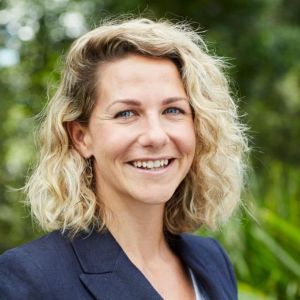
Kylie Beattie
Managing Director
Bachelor of Social Science (Counselling)
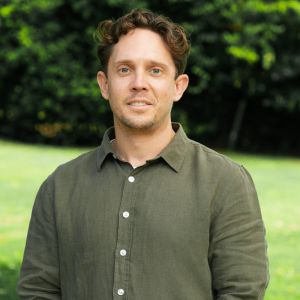
Luke Mahon
Clinical Lead
MA Gest
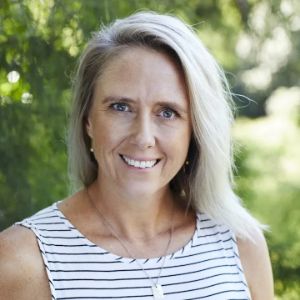
Kim Meighan
Clinical Care Coordinator
RN

Ilke Sharratt
Business Operations Lead
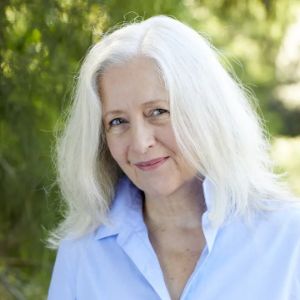
Anne Lambert
Family Therapist / Primary Therapist
Ba S&Hc
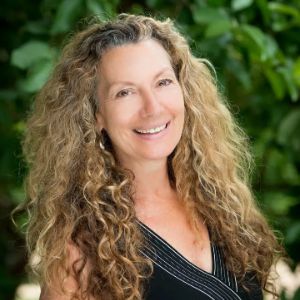
Lisa Toman
Psychotherapist / Equine
MaGest
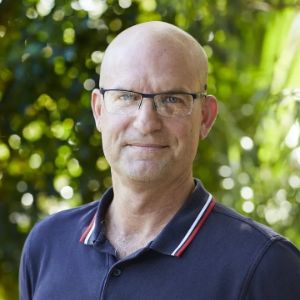
Jim Donald
Lead Care Staff

Kristyn Dobson
Naturopath
Bachelor of Naturopathy
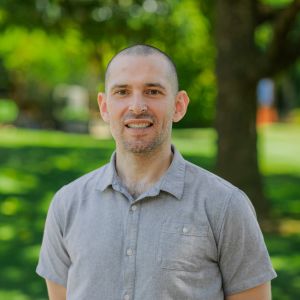
Benny Green
Primary Therapist / Social Worker
BA SoSC
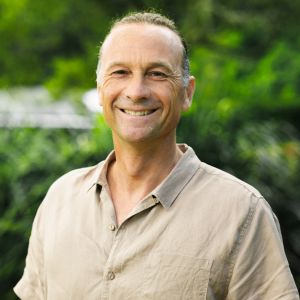
Shane Sutton
Primary Therapist / Psychologist
PGDip Psych




Treatment
Specializations
Anxiety
Anxiety is a common mental health condition that can include excessive worry, panic attacks, physical tension, and increased blood pressure.
Depression
Symptoms of depression may include fatigue, a sense of numbness, and loss of interest in activities. This condition can range from mild to severe.
Co-Occurring Disorders
A person with multiple mental health diagnoses, such as addiction and depression, has co-occurring disorders also called dual diagnosis.
Drug Addiction
Drug addiction is the excessive and repetitive use of substances, despite harmful consequences to a person's life, health, and relationships.
Bipolar
This mental health condition is characterized by extreme mood swings between depression, mania, and remission.
Trauma
Some traumatic events are so disturbing that they cause long-term mental health problems. Those ongoing issues can also be referred to as "trauma."
Eating Disorders
An eating disorder is a long-term pattern of unhealthy behavior relating to food. Most people with eating disorders have a distorted self-image.
Alcohol
Using alcohol as a coping mechanism, or drinking excessively throughout the week, signals an alcohol use disorder.
Who We Treat
Veterans
Patients who completed active military duty receive specialized treatment focused on trauma, grief, loss, and finding a new work-life balance.
Co-Occurring Disorders
A person with multiple mental health diagnoses, such as addiction and depression, has co-occurring disorders also called dual diagnosis.
Young Adults
Emerging adults ages 18-25 receive treatment catered to the unique challenges of early adulthood, like college, risky behaviors, and vocational struggles.
LGBTQ+
Addiction and mental illnesses in the LGBTQ+ community must be treated with an affirming, safe, and relevant approach, which many centers provide.
Executives
Executive treatment programs typically directly support the needs of people who manage businesses and may provide flexible schedules and office space to allow work during treatment.
Midlife Adults
For adults ages 40+, treatment shifts to focus on the unique challenges, blocks, and risk factors of their age group, and unites peers in a similar community.
Mild Disabilities
Adults with mild physical or intellectual disabilities receive treatment catered to their specific needs in a safe and clinically supportive environment.
Treatment Services
Residential
In a residential rehab program, patients live onsite, with access to daily treatment and 24-hour care. An average stay is 30-90 days.
Detox
Detox fully and safely removes toxic substances from the body, allowing the next steps in treatment to begin with a clean slate.
Approaches
Personalized Treatment
The specific needs, histories, and conditions of individual patients receive personalized, highly relevant care throughout their recovery journey.
Twelve Step
Incorporating spirituality, community, and responsibility, 12-Step philosophies prioritize the guidance of a Higher Power and a continuation of 12-Step practices.
Holistic
A non-medicinal, wellness-focused approach that aims to align the mind, body, and spirit for deep and lasting healing.
Evidence-Based
A combination of scientifically rooted therapies and treatments make up evidence-based care, defined by their measured and proven results.
Wellness
Wellness philosophies focus on the physical, mental, and spiritual wellness of each patient, helping them restore purpose with natural remedies.
Therapies
1-on-1 Counseling
Patient and therapist meet 1-on-1 to work through difficult emotions and behavioral challenges in a personal, private setting.
Family Therapy
Family therapy addresses group dynamics within a family system, with a focus on improving communication and interrupting unhealthy relationship patterns.
Equine Therapy
Guided interactions with trained horses, their handler, and a therapist can help patients improve their self-esteem, trust, empathy, and social skills.
Acceptance and Commitment Therapy (ACT)
This cognitive behavioral therapy teaches patients to accept challenging feelings and make the appropriate changes to reach personal goals.
Twelve Step Facilitation
12-Step groups offer a framework for addiction recovery. Members commit to a higher power, recognize their issues, and support each other in the healing process.
Psychoeducation
This method combines treatment with education, teaching patients about different paths toward recovery. This empowers them to make more effective decisions.
Motivational Interviewing and Enhancement Therapy (MET)
This approach is based on idea that motivation to change comes from within. Providers use a conversational framework that may help you commit to recovery.
Art Therapy
Visual art invites patients to examine the emotions within their work, focusing on the process of creativity and its gentle therapeutic power.
Conditions We Treat
Post Traumatic Stress Disorder
PTSD is a long-term mental health issue caused by a disturbing event or events. Symptoms include anxiety, dissociation, flashbacks, and intrusive thoughts.
Anxiety
Anxiety is a common mental health condition that can include excessive worry, panic attacks, physical tension, and increased blood pressure.
Depression
Symptoms of depression may include fatigue, a sense of numbness, and loss of interest in activities. This condition can range from mild to severe.
Codependency
Codependency is a pattern of emotional dependence and controlling behavior. It's most common among people with addicted loved ones.
Obsessive Compulsive Disorder (OCD)
OCD is characterized by intrusive and distressing thoughts that drive repetitive behaviors. This pattern disrupts daily life and relationships.
Pornography Addiction
A person with a porn addiction is emotionally dependent on pornography to the point that it interferes with their daily life and relationships.
Gambling
Excessive, repetitive gambling causes financial and interpersonal problems. This addiction can interfere with work, friendships, and familial relationships.
Internet Addiction
Internet addiction is common among children teens. This compulsive disorder can damage relationships, school performance, sleep habits, and physical health.
Stress
Stress is a natural reaction to challenges, and it can even help you adapt. However, chronic stress can cause physical and mental health issues.
Bipolar
This mental health condition is characterized by extreme mood swings between depression, mania, and remission.
Substances We Treat
Cocaine
Cocaine is a stimulant with euphoric effects. Agitation, muscle ticks, psychosis, and heart issues are common symptoms of cocaine abuse.
Prescription Drugs
It's possible to abuse any drug, even prescribed ones. If you crave a medication, or regularly take it more than directed, you may have an addiction.
Benzodiazepines
Benzodiazepines are prescribed to treat anxiety and sleep issues. They are highly habit forming, and their abuse can cause mood changes and poor judgement.
Ecstasy
Ecstasy is a stimulant that causes intense euphoria and heightened awareness. Abuse of this drug can trigger depression, insomnia, and memory problems.
Co-Occurring Disorders
A person with multiple mental health diagnoses, such as addiction and depression, has co-occurring disorders also called dual diagnosis.
Psychedelics
Hallucinogenic drugs—like LSD—cause euphoria and increased sensory experiences. When abused, they can lead to depression and psychosis.
Drug Addiction
Drug addiction is the excessive and repetitive use of substances, despite harmful consequences to a person's life, health, and relationships.
Heroin
Heroin is a highly addictive and illegal opioid. It can cause insomnia, collapsed veins, heart issues, and additional mental health issues.
Languages
Aftercare
Experience
Personal Amenities
Amenities
Special Considerations
Activities
Yoga
Yoga is both a physical and spiritual practice. It includes a flow of movement, breathing techniques, and meditation.
Off-Site Activities
Off-Site Amenities

Learn More About the Center
Who Is Rehab For?
Byron Private discusses who rehab is for, in full belief treatment is for all.
Take a Photo Tour
See more pictures of Byron Private, including their property and amenities.
A Typical Day in Treatment
Learn more about what to expect during a typical day at Byron Private.
Sustainability at Byron Private
Byron Private commits to sustainability–see how.
What people are saying
Accommodations
Food & Nutrition
Treatment
Value
Pros
- Supportive Aftercare (4)
- Treated With Respect (7)
- Straightforward Costs & Expectations (4)
- Smooth Transition Post-Treatment (6)
See More
Jo
Jake
Dale
SM
Louie Thomas
We love hearing about your treatment experience
Help individuals and families seeking treatment by sharing your first-hand experience with this treatment provider. Review Guidelines.





